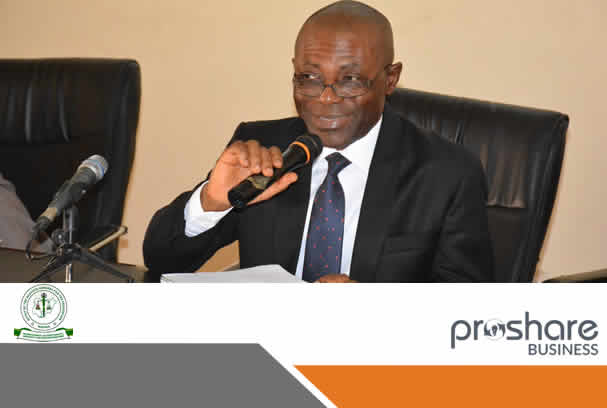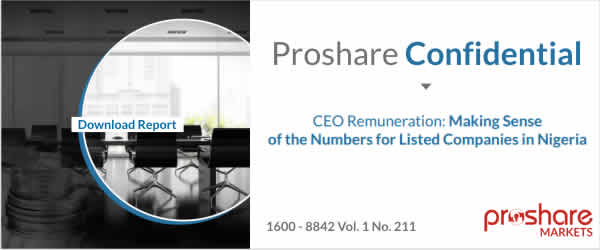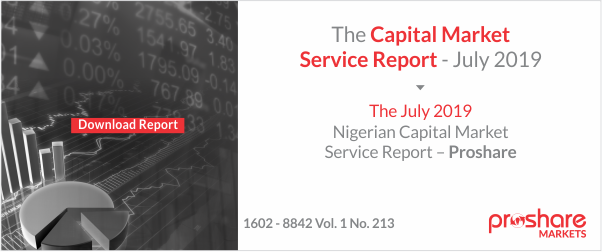Monday, August 19, 2019 /03:55PM / By Chijioke Nelson of The Guardian / Header Image Credit:
- Accuses agencies of violating accounting rules, failing to submit fiscal reports
- MDAs without audited reports increased from 148 in 2014 to 323 in 2018
- Financial indiscipline blamed on Buhari inaction, failure to sign anti-graft bills
Almost all Ministries, Departments andAgencies (MDAs) have been indicted for financial wrongdoings in the latestfiscal assessment of the country.
The indictment came against thebackdrop of the much-talked-about fight against corruption being waged by theFederal Government.
Some of the cases of irregularityincluded improper records of transactions, unsubstantiated claims and outrightnon-report. For instance, an estimated N500 billion was submitted to theNational Assembly. But the money, according to the 2016 report by the Office ofthe Auditor-General of the Federation, was not properly accounted for.
The situation however might not beresolved any sooner because of a lack of enabling laws that would compel andsanction erring MDAs that ignore audit queries.
The Auditor-General of the Federation(AGF), Anthony Ayine, lamented that the gross violation of statutory financialreporting obligations by government agencies is worrisome.
Most of the government corporations,companies and commissions have not submitted their audited accounts for 2016 tome. Only 51 audited financial statements for 2016, and 149 for 2015, have beensubmitted to my office as at December 27, 2017, despite the provision ofFinancial Regulation 3210(v), which enjoins these bodies to submit both auditedaccounts and management report to me not later than May 31 of the following yearof account.
As at April 2018, 109 agencies havenot submitted beyond 2013; 76 agencies last submitted for the 2010 financialyear; while 65 agencies have never submitted any account since inception, Ayine said.
An analysis of the report showed thatgovernment agencies, despite the anti-corruption campaign, have increasinglybecome more reckless with public finance, with 323 agencies failing to submitreports in 2016. In 2015 and 2014 however defaulters numbered 215 and 148.
Highlighting a breach of transparencyand accounting standards, the report further detailed unremitted deductionsworth more than N3.79 billion involving over 40 agencies including thepresidency, Economic and Financial Crimes Commission (EFCC), and the NationalAssembly.
It noted that about N13.96 billionreported as salaries and wages in the consolidated financial statement of theEFCC were not in the anti-graft agency trial balance submitted forreconciliation.
Besides, the EFCC was listed as one ofthe agencies with doubtful cash balance of over N315 million. Others on thelist include the House of Representatives (N291.68 million) and LagosUniversity Teaching Hospital (N343.7 million).
The State House, Office of the Chief ofStaff to the President, and EFCC led 62 other MDAs on the list of governmentoffices with outstanding personal advances estimated at N4.87 billion as atDecember 31, 2016.
The audit inspection of accountingrecords at the Federal Ministry of Health showed several overdue cash advancesof N380.9 million outstanding as at October 2016. Some of these have beenoutstanding since 2014, even as multiple others were granted without retiringthe previous ones, contrary to financial regulations on granting and retirementof advances.
The magnitude of the amount involvedsuggests the absence of an effective internal control in respect of advances.
At the Ministry of Trade andInvestment, 13 payment vouchers of N60.39 million were raised for payment ofestacode and air tickets for staff. All were, however, without supportingdocuments as required by Financial Regulation 603.
President Muhammadu Buhari hasconsequently been accused of encouraging fiscal indiscipline by refusing toassent to sensitive bills on fiscal governance. He has also been blamed forshowing a lack of concern for the economy by keeping the national budgetperpetually incapacitated and subjecting it to a three-month abuse bydelaying the appointment of ministers.
The president who has repeatedly saidhe would return the budget calendar to the January-December cycle rejected theBudget Timeframe Bill and has not come up with a working alternative. Also,since January 2019, a duly passed Federal Audit Reform Bill sent to him forassent has not been signed. There has not been any communication from the presidencyabout its rejection.
The bills however have lapsed. Sincethe Eighth Assembly which drafted them has ended, they would require freshlegislative exercise, lasting years perhaps, and additional millions of nairain cost.
The fiscal anomaly meanwhile appearsset to continue.
In his reaction, Taiwo Oyedele,Partner/Head of Tax and Corporate Advisory Services at PwC Nigeria, stressedthe need for fiscal transparency in the country. He cited a national survey bythe Nigerian Economic Summit Group, which showed that about two in every threeadults do not trust government with their taxes, hence about 83 per cent ofindividuals and nearly 70 per cent of businesses do not consider tax evasion aswrong.
With such a high level of apathytowards tax, it is impossible to move the needle on revenue generation.Government at all levels must urgently start taking steps to address fiscaltransparency issues to build the much-needed trust in the system.
Based on the audit report by the AGF,it was revealed that the National Assembly, the presidency and some agenciessuch as the EFCC defaulted in remitting various taxes, including the Pay As YouEarn of their staff and Value Added Tax (VAT) on payments to their vendors, Oyedele said.
He noted further: This trendunfortunately sends the wrong signal from the top and further dampens citizens tax morale. The vast majority of citizens and Nigerian businesses are unwillingto voluntarily comply with their tax obligations mainly because of lack oftransparency and non-commensurate social services.
This is a key factor responsible forNigerias low tax to Gross Domestic Product (GDP) ratio. Addressing the problemcould easily raise the countrys tax revenue by over 100 per cent, from thecurrent six per cent to at least 12 per cent of GDP.
The Lead Director of the Centre forSocial Justice (CSJ), Eze Onyekpere, on his part, faulted the presidentsrejection of the Budget Timeframe Bill.
He said: It was clearly evident thatthe president was misled and misadvised by his legal and fiscal governanceteam. In one breath, he kept repeating the desire of his administration toreturn the budget calendar to normalcy but when the opportunity presenteditself on a platter of gold, to walk the talk, he declined.
The bill was not an executive bill andhe offered no old or new ideas on how the bill could be remedied, to return tothe January-December calendar,â€he said.
Onyekpere noted that the Federal AuditService Commission Bill or the Audit Reform Bill received a much coldertreatment. According to him, The president neither formally declined assentnor gave assent to this bill. It is customary when the president declinesassent to send a letter to the National Assembly, indicating his reasons fordeclining assent. He just acted as if the bill was not forwarded to him.
It shows a clear lack of understandingof what is needed for fiscal governance, transparency and anti-corruptionreforms. It could also be interpreted as a lack of political will on the partof the administration to implement reforms. The implication is that thegovernment does not believe in most of what it says. It believes more in thepropaganda of reforms, rather than actually implementing real reforms.
There is evidence of lack of capacityand political will on the part of this administration to timely and properlyaccount for resource expenditure. Budget Implementation Reports (BIRs) nolonger come on time and no longer reflect what actually happened.
Fiscal stability is part of fiscalresponsibility and transparent reporting is a key cornerstone of the two.Therefore Nigeria cannot be said to be fiscally stable in an environment ofuncertainty and failure to report timelines, coupled with the administrationsimpunity mindset that believes it owes the citizens no reporting obligation.
The audit bill was expected to revealand plug channels of corruption, compel and sanction MDAs that ignore auditqueries, monitor compliance of MDAs, and make the office of the AGFindependent.
Dr. Titilayo Eni-tan Fowokan said suchlow-level fiscal compliance by government offices is obtainable whenenforcement is applied on corporate taxpayers and citizens without commensuratepressure and oversight on government agencies.
According to the Fellow of theChartered Institute of Taxation of Nigeria, When a country is transparent inreporting its resource utilisation and demonstrates accountability to thecitizens, voluntary tax compliance is encouraged and the level of taxcompliance vis-a-vis tax revenue generation increases.
Also, a development consultant, JideOjo, told The Guardian it is disheartening that the president rejected billsthat would have ensured good governance after resources had been expended ontheir passage.
Now that the government has signed onto Open Government Partnership, it needs to show better transparency andaccountability in governance. This will help in the crusade against corruptionand financial instability, Ojo said.
In his own submission, ExecutiveDirector of Media Rights Agenda Edetaen Ojo said: The fact is that our currentaudit system is quite archaic and in dire need of modernisation. So, it is veryimportant that a system that has passed through a participatory and consultativeprocess of a variety of stakeholders and also responds to the key concerns ofindependence and reliability is put in place.
According to him, while PresidentBuhari is not an expert on issues of fiscal governance, the quality ofassistance he is getting from his advisers and other relevant officials isdisturbing.
As a president who has putanti-corruption as his biggest preoccupation, this is an issue that has a hugeimpact on public sector corruption and should therefore be a priority for him,if he intends to be effective in his war against corruption.
It seems to me that theanti-corruption war is deliberately backward-looking, as it tends to targetgovernment officials in the last administration with good reason, but isextremely reluctant to institute legal measures to stem or prevent future actsof corruption, and even more reluctant to go after members of theadministration who have also been accused of acts of corruption.
If that is the entire strategy, it isflawed and bound to fail because such an approach would only serve topoliticise the anti-corruption war and thereby undermine its effectiveness.
Credit: The post Auditor-General Indicts Presidency, EFCC, NASS first appeared in The Guardian on August 19, 2019
Related News
1. Financial Reporting Council ofNigeria Revokes “Rule 4â€Â
2. Anti-Corruption Compliance: A Guidefor Mid-Sized Companies in Emerging Markets
3. Guide To Nigerian Online FinancialScams
4. 1st Accounteks Summit: Jaiyeola,Akinwuntan Speak on How Tech Will Shape Accounting Profession
5. UK Financial Conduct Authority (FCA)Publishes Feedback Statement On Duty Of Care
6. House of Reps Reject ForensicInvestigative Auditor Of Nigeria Bill
7. Update On The Forensic InvestigativeAuditor Of Nigeria Bill
8. ICAN To Hold 1st AccountingTechnology Summit ACCOUNTEKS
9. Code of Ethics and Standards ofProfessional Practice for Registered Investment Advisers in Nigeria
10. The Accounting Profession: ThrowBack, Throw In And Throw Out
 Lagos, NG • GMT +1
Lagos, NG • GMT +1











 1148 views
1148 views








 Sponsored Ad
Sponsored Ad
 Advertise with Us
Advertise with Us









